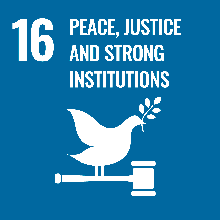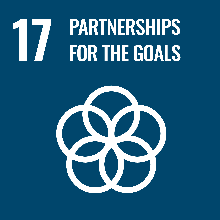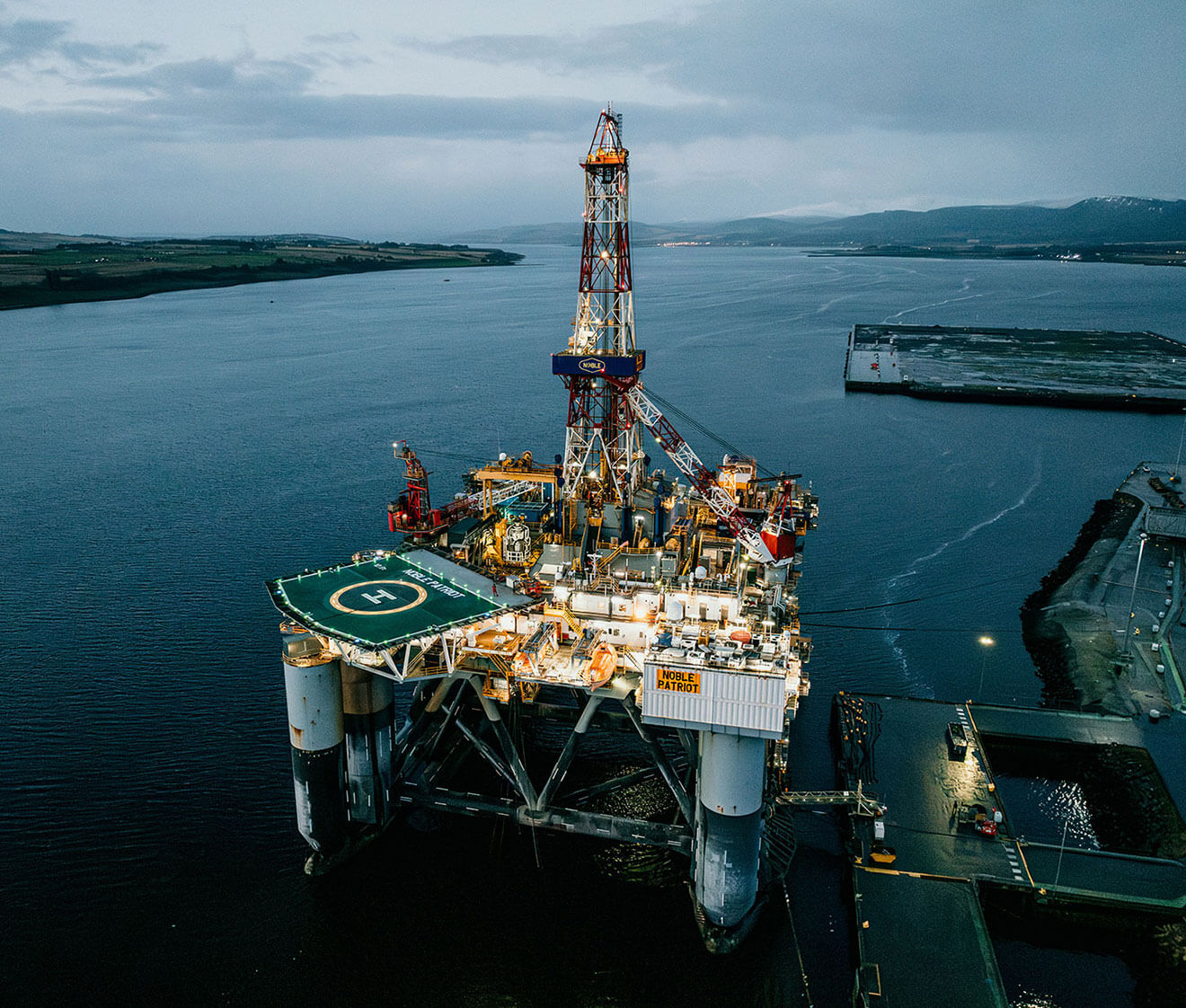the Senior Vice President, Caroline Alting
Our sustainability framework
We are pleased to present full-year sustainability metrics and examples of our sustainability framework in action in 2024. Noble’s leadership, including our Board, prioritizes these initiatives as an investment for our sustainability mission to provide affordable energy efficiently, safely and reliably. Their dedication is reflected in their support for our energy policy and sustainability framework, strategy, decarbonization targets and initiatives.
At Noble, we view regulatory compliance, including in sustainability reporting, as an opportunity to drive long-term value for our business and stakeholders.
Noble’s 2024 Sustainability report is prepared having regard to the European Sustainability Reporting Standards (ESRS) framework, in anticipation of future reporting requirements under the Corporate Sustainability Reporting Directive (CSRD). This report is entirely voluntary and is not intended to comply with any specific regulatory reporting requirements. In 2024, we completed a materiality assessment, which applied the principle of double materiality, as described in the EU’s CSRD, and the draft ESRS. Building on the results of this analysis, we developed our first ESRS-aligned sustainability statement presented in this report.
Noble acquired Diamond Offshore in 2024 to further grow and strengthen our position as a global offshore drilling leader. Considering the increased fleet size and emissions from the acquisition, our focus has been on effective integration including a seamless transition and alignment of sustainability practices and maintaining consistency in our sustainability reporting and performance metrics.
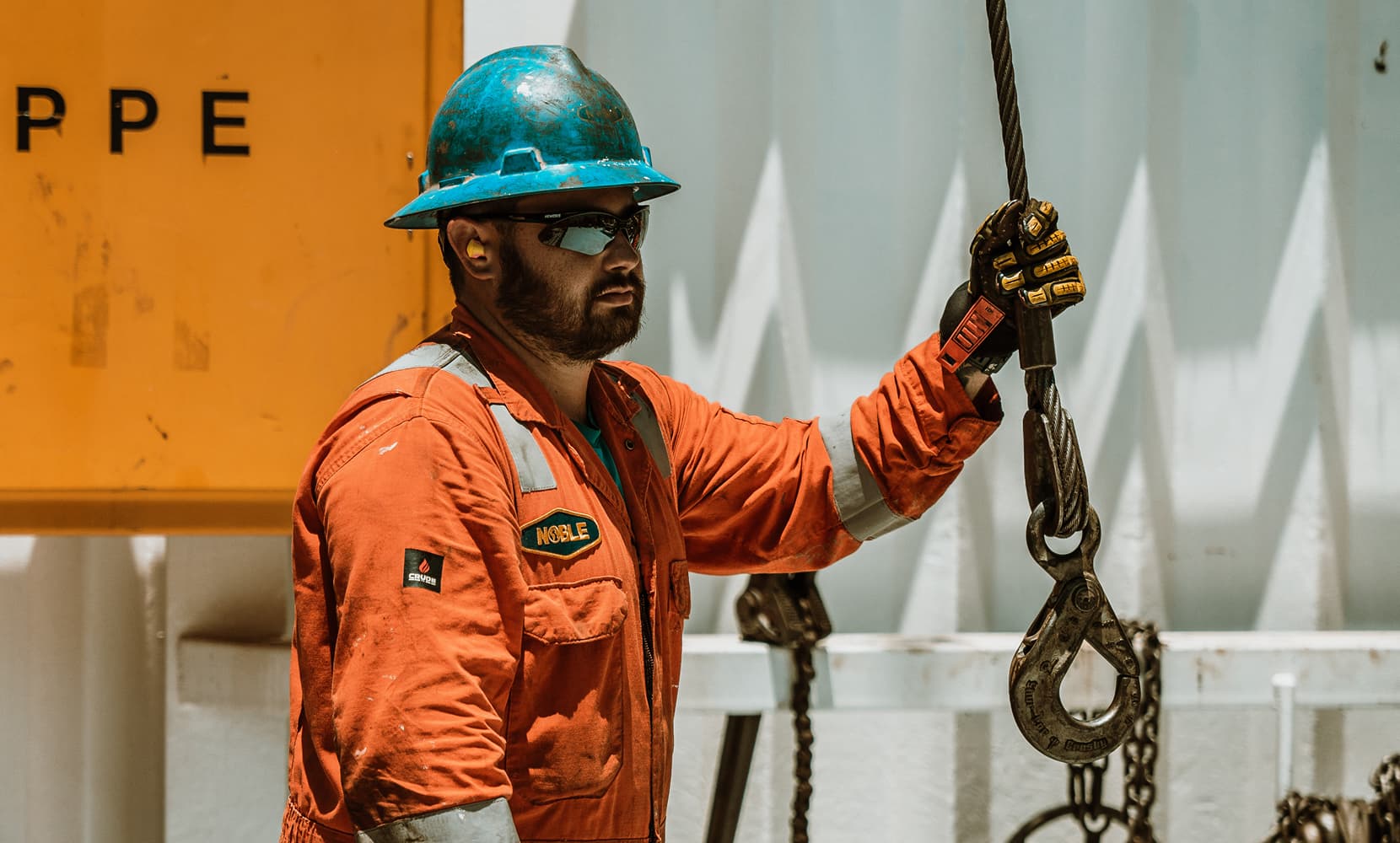
material topics were identified through the double materiality process. A 2024 review confirmed that the assessment remains valid.
As a drilling contractor within the oil and gas lifecycle, Noble is dedicated to a realistic sustainability agenda and to executing the plans. We have established policies, initiatives and responsibilities to progress our strategic focus areas. To execute our plans, we have shaped our culture, implemented digital solutions, engaged and empowered employees, collaborated with our customers and worked to strengthen communities where we operate.
In 2024, Noble began working toward the carbon emissions intensity reduction target we set in 2023. We implemented 180 initiatives aimed at decarbonizing our operations. For example, we introduced a sustainable behavior program, EnergyWise, that empowers rig members to identify improvements that will contribute to decreasing our energy consumption and greenhouse gas (GHG) emissions.
Using the proprietary EEI energy consumption monitoring tool we developed, we identified opportunities to further reduce emissions. In addition, we conducted an assessment of our Scope 3 emissions in the supply chain. In 2025, we will aim to further our actions in energy management, launch energy management plans on the rigs, and implement more sustainable behaviors into our operations.
Safeguarding our workforce – a key element of Caring for People – is a strategic focus area for Noble. In 2024, we improved our ability to develop prevention solutions leveraging our learnings from our Potential Consequence Severity Index, which we introduced in 2023. Now, instead of focusing solely on actual outcomes, we are monitoring and learning from the potential impact of incidents.
We demonstrated Caring for People through training and development programs, such as those available in Guyana designed to enable rig teams to perform their jobs safely and efficiently. In 2025, we have plans to expand our impact by deepening our engagement with local communities, driving meaningful, lasting change in the places where we work, and reinforcing our efforts to caring for people.
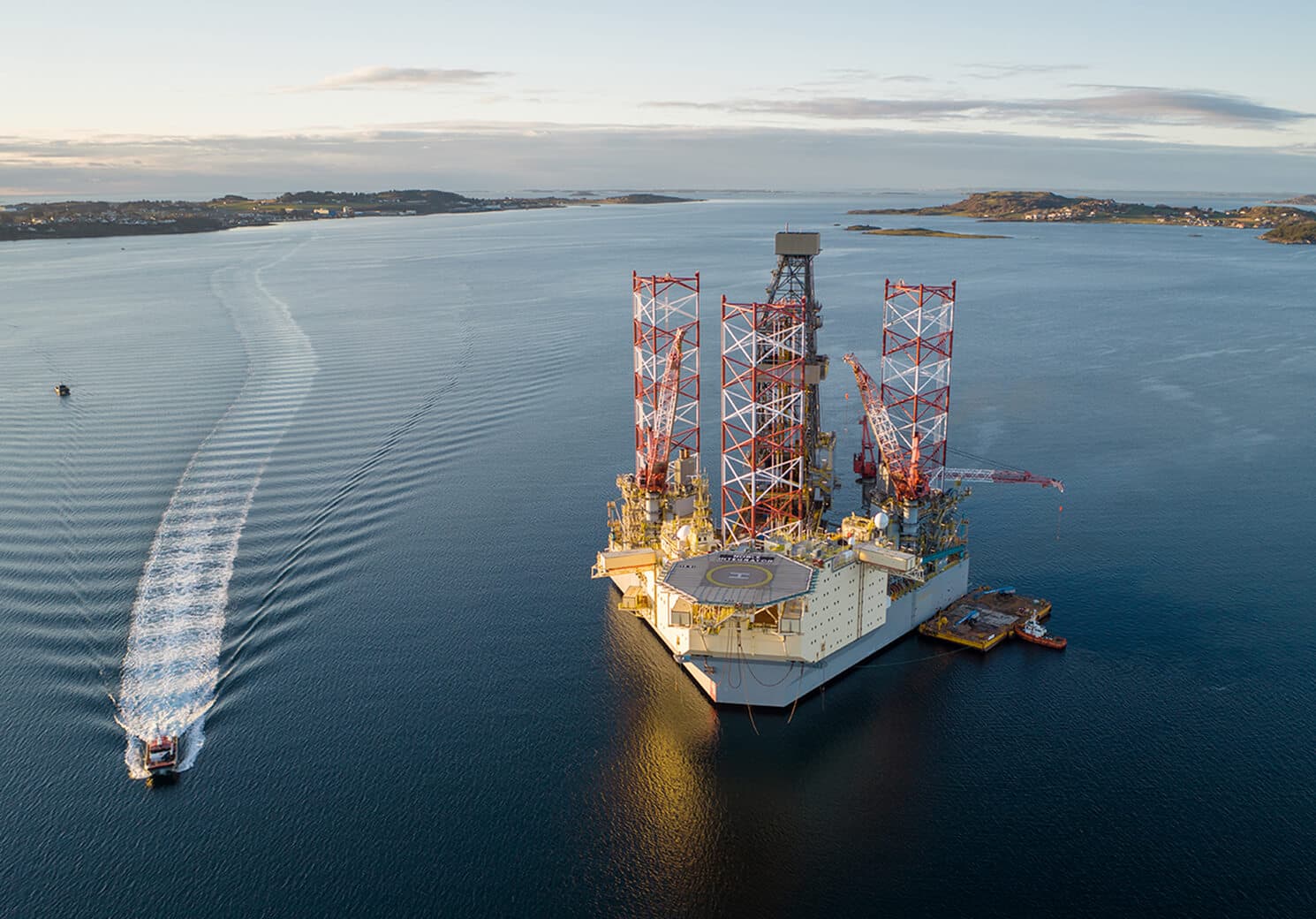
We truly believe that our sustainable practices foster our efficiency, reliability and safety—all key contributors to our ambition to be First Choice Offshore. Efforts in 2024 included kicking off our carbon emissions intensity reduction target with over 100 initiatives to decarbonize our operations.
Noble aspires to transparently disclose our results. The disclosures aim to provide stakeholders with accurate and reliable information on relevant material sustainability impacts, risks, and opportunities. In preparing this report, we followed the principles of materiality, connectivity, comparability, and completeness as outlined in ESRS 1 and in accordance with the Global Reporting Initiative (GRI), Sustainability Accounting Standards Board Oil & Gas Services Sustainability Standard and International Association of Drilling Contractors’ Environmental, Social, and Governance (ESG) Reporting Guidance.
All of Noble’s ESG initiatives occur in an ever-changing, real world operating environment of weather events, rig moves and other challenges. The dynamic nature of the oil and gas industry and our work sometimes masks our improvements and emissions reduction results. I am grateful to Noble employees for believing in our mission, working to make a positive difference, serving our customers safely and efficiently, and persevering to fulfill our goals.
We hope this report gives you a greater understanding of how our sustainability performance contributes to positioning Noble as the First Choice.
Caroline Alting
Senior Vice President, Operational Excellence and Sustainability
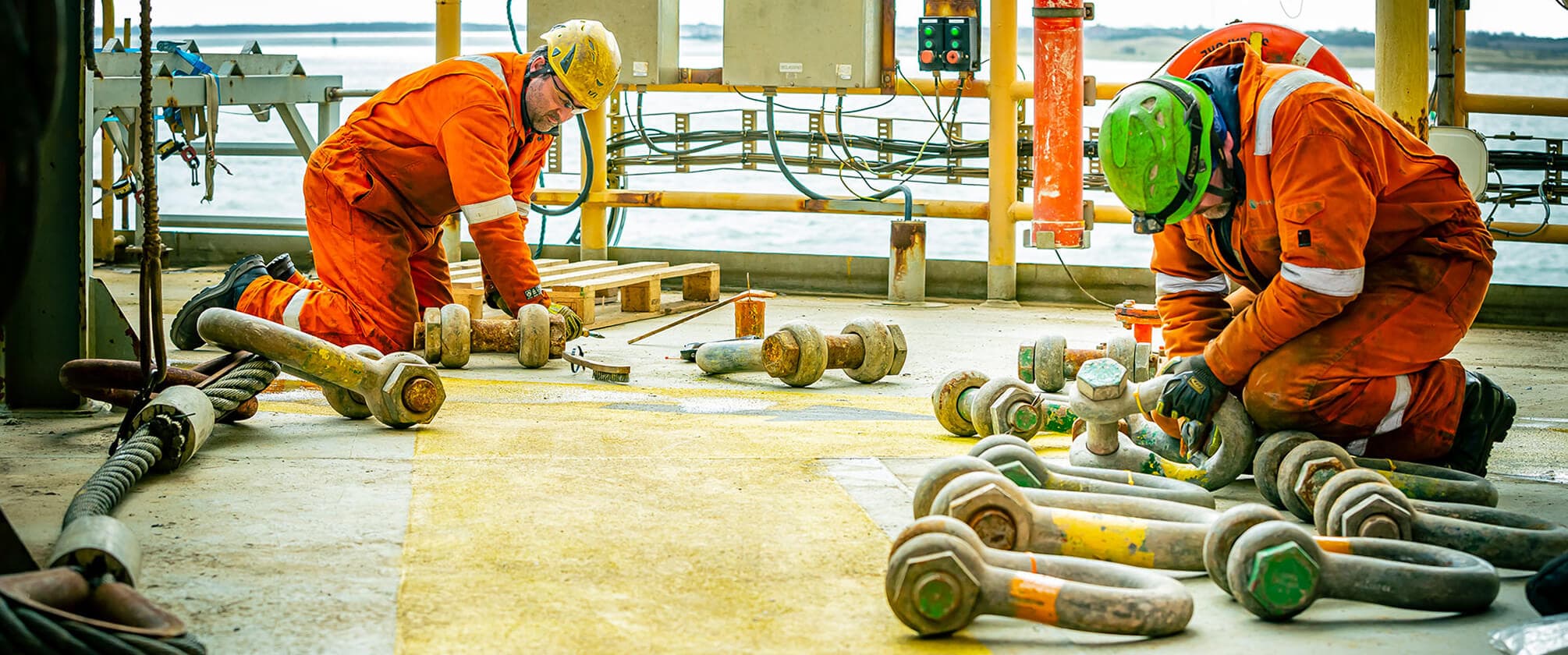
Our sustainability framework
Noble’s sustainability framework underpins our mission to help provide affordable energy efficiently, safely and sustainably, and is intended to build on our longstanding customer relationships and our unique innovation capabilities to heighten positive impact.
14 material topics comprise our sustainability framework and they are structured across three pillars which each correspond to Environment, Social, Governance (ESG) elements: Sustainable Energy Future, Caring for People, and Responsible Business. Of the 14 topic areas comprising the framework, three are strategic focus areas within which efforts will be focused. These include Decarbonization, Health & Safety, and Workplace Inclusion.
Sustainable Energy Future
Decarbonization
Climate risks and energy transition
Marine and air environment
Consumption and waste management
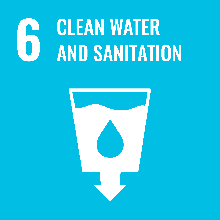
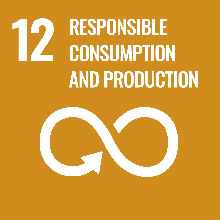
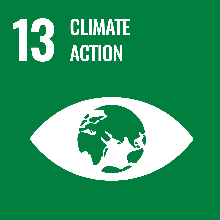
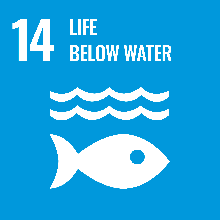
Caring for People
Health and safety
Workplace inclusion
Talent management
Local communities
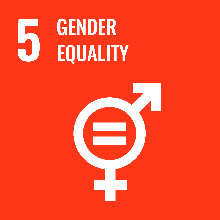
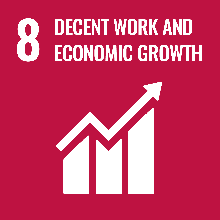
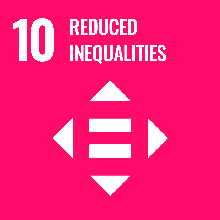
Responsible Business
Critical incident risk management
Corporate governance
Business ethics
Cybersecurity and data privacy
Decommissioning
Reporting and engagement

